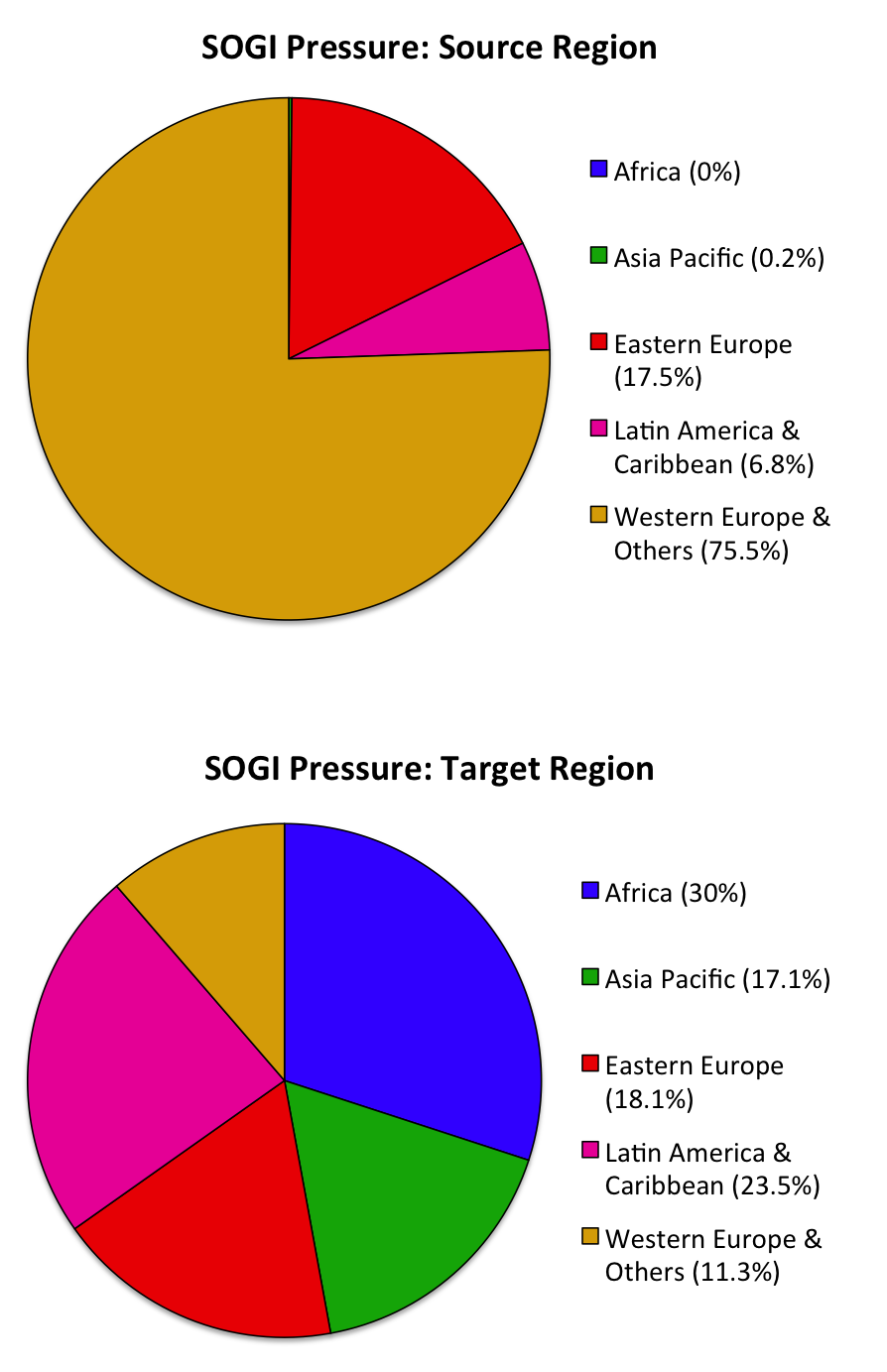Universal Periodic Review: Western pressure on sexual orientation and gender identity
Recently, I wrote about the troubling trend of Western countries using the Universal Periodic Review (UPR) system to pressure Latin American countries to change their laws on abortion.
In a similar way, the same region is attempting to press its understanding of sexual orientation and gender identity on developing regions. Again, this concept (the UN tends to use the abbreviation acronym SOGI rather than LGBT, LGBTIQQAA2S, etc.) does not actually occur in any international human rights treaty, by any formulation.
This chart shows the instances of SOGI pressure in the first cycle of the UPR. The map at the top is color coded to show the regions according to the UN geoscheme – note that “Western Europe and Others” includes the United States, Canada, Australia, New Zealand, and Israel.
The first UPR cycle contained a total of 503 instances of SOGI pressure (compared to the approximately 30 related to abortion.)
These charts show the sources and destinations of these recommendations, by region. More than three quarters of SOGI pressure came from Western Europe and its allies, and the most common recipient was Africa, with 30%.
Recommendations can be scored in different ways. Some are classified as calling for minimal action, or for a country to continue doing what it’s already doing. Some contain a request that the target country “consider” undertaking a specific action. The strongest recommendations are classified as “requests for a specific action” – in the case of SOGI, the most common specific action is to decriminalize same-sex behavior, or in cases where this is already the case, to change the country’s laws to allow same-sex partnerships or marriages. The most controversial recommendations involve enabling adoption of children by same-sex couples or making assisted reproductive technology available to same-sex couples who want to have children.
These graphs examine the “request for specific action” recommendations by region, and also look at whether the target country “accepted” or merely “noted” the recommendation.
Africa received the most requests for specific action, followed by Latin America. However, the vast majority of those requests were not accepted. The second graph shows the rate of acceptance of requests for specific action (e.g. changes to the penal code) by region. Once again, Africa and Latin America accepted less than 20% of these recommendations, and Asia and the Pacific less than 30%.
Europe and the other Western countries accepted more than half of these requests, but even the most aggressive region of Western Europe and its allies accepted little more than 60% – showing that even in the most liberal regions, some things are still too much to ask for.
This last point should serve as a warning for Africa, Asia, and Latin America: capitulating once will not be enough to appease Europe, and there is no floor and no ceiling to where this pressure will ultimately lead. Once you stray outside the bounds of the agreed text of treaties, there’s nothing but the wild West.
View online at: https://c-fam.org/turtle_bay/universal-periodic-review-western-pressure-sexual-orientation-gender-identity/
© 2025 C-Fam (Center for Family & Human Rights).
Permission granted for unlimited use. Credit required.
www.c-fam.org




